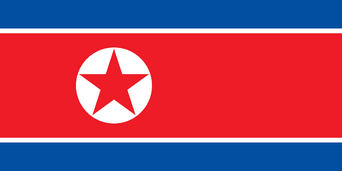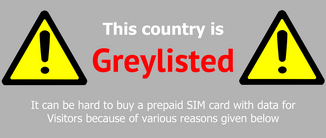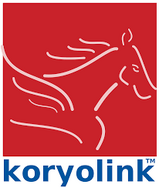
Basics[]

North Korea, officially the Democratic People's Republic of Korea (DPRK), is a very isolated and secluded country where very special rules and obligations apply.
There are reportedly three mobile providers in North Korea:
- Koryolink (고려링크) 467/05
- Byol (별) Star
- Kang Song NET 467/06
Not much Information is known on Byol Star. However it is known that Kang Song is a governement-made network made to compete with the older, cheaper and higher quality Koryolink, that is partly owned by an Egyptian firm.
Kang Song NET and Byol (Star) are often displayed as 467 06 network and remain inaccessible for foreigners. That's why it's not dealt with any further.
Only Koryolink caters to foreigners too, mainly in the capital of Pyongyang and in major towns. It started as a joint venture between the Egyptian company Orascom Telecom Media and Technology Holding (OTMT) and the state-owned Korea Post and Telecommunications Corporation (KPTC). However the Government of North Korea refused permission to transfer profits from North Korea to Orascom and even started Kang Song Net and Byol to compete with Koryolink. As result Orascom reported, that it effectively has lost control over Koryolink's activities some years ago.
Koryolink started as the first 3G mobile operator in North Korea in 2008. Koryolink's 3G network now covers 94% of the population, but effectively on only 14% of the territory with several hundred base stations in the capital and scores of other cities.
Koryolink has no international roaming agreements. Your home provider won't work in North Korea. Like the landlines, there are distinct lines for different purposes and people. Koryolink has an internal network for Koreans and another network for non-Koreans and they cannot call one another. Koreans cannot call outside the DPRK, nor can they access the internet at all. There is no roaming for international Koryolink customers on Kang Song Net, only for locals. The coverage of Kang Song Net is wider than that of Koryolink. but inaccessible to foreigners.
All the information given for Koryolink below is about their network for foreigners.
Regulations[]
Prior to January 2013, foreigners had to surrender their mobile devices at the border crossing or airport before entering the country, but with the availability of local SIM cards this policy is no longer in place.The current exception to this when crossing to overland from China for a day-trip or one-night trip to Sinuiju when you are not allowed to bring a mobile phone. On arrival in North Korea at the airport, you need to declare your phone along with any other electronics you might be carrying (phones, tablets, computers, etc.). It's possible that Korean customs will ask to inspect your electronic devices on arrival.
It is highly recommend to check all of your electronics before departure to North Korea and remove any information and/or media related to Korea (both North and South), information or media in Korean language, religious material, and/or pornography. North Korean customs may confiscate devices found to contain the above type of prohibited media.
You will not have roaming serivces through your home provider in North Korea. Instead prepaid SIM cards are offered to visitors, some for data too, only on the network of Koryolink.
Internet and WiFi[]
International internet access is via a fiber-optic cable connecting Pyongyang with China. North Korea's first internet café opened in 2002 connected via a line to China. Foreign visitors can link their computers to the internet through international phone lines available in a few hotels in Pyongyang. Some new internet cafés opened in Pyongyang, connected through the North Korean satellite link.
Censorship[]
Censorship in North Korea is the most extreme among the world, with the government able to take strict control over communications. From 2007 on North Korea has been listed second to last (behind Eritrea) of some 180 countries.
Internet access is not generally available in North Korea to the public. Only few high-level officials are allowed to access the global internet. In some universities, a small number of strictly monitored computers are provided. Other citizens may only get access to the country's own internet, called Kwangmyong ("Bright"). Even this intranet is restricted to certain elite grade schools, select research institutions, universities, factories and privileged individuals. Moreover, the intranet is filtered, which ensures that only "acceptable" information can be accessed through the network. The government claims anyone who tries to visit sites via irregular ways (such as VPNs) or transmit 'anti-Republic' data via these sites will be subjected to severe punishment.
It’s worth noting that while you can’t use Twitter, Google or Facebook in China because of their 'firewall', you actually can from North Korea. It appears that access to the internet for visitors isn't censored in the same way that it is for local people. Foreign users have been able to access Facebook, Twitter, and most of the major social media sites and reported no obvious blocking. However, Instagram and YouTube seems to be blocked recently, because it's said to use too much bandwidth. Furthermore there are restrictions on visiting South Korean websites, anti-DPRK websites, and websites with pornographic content. VPN use is not restricted like in China.
Koryolink[]

Koryolink's network is 3G-only on 2100 MHz and they claim to cover more 90% of the population by their 3G network that can't be independently verfied. Koryolink is officially a joint venture between Egyptian Orascom Investment Holding and the North Korean state.
Availability[]
Arriving in North Korea at the international airport of Sunan, there is a booth of Koryolink located in the terminal building, where you can buy a SIM card for visitors. Prepare for some waiting. It's only open when a plane arrives and this may happen not for every plane.
The only other place for foreigners to buy a SIM card is in the Koryolink store located in Pothonggang Hotel in Pyongyang.
There and at other Koryolink outlets it's possible to recharge your prepaid SIM by cash. When you have bought a local foreign currency prepaid card called Narae, you can recharge your phone credits anywhere that accepts Narae Cards. Dial *900*# to check your balance.
All SIM cards for foreigners are only valid for the duration of your stay or visa and will be shut off after your you have left the country. However, you can keep the SIM card for another visit to be re-assigned for an unknown fee.
Options for visitors[]
A new SIM card with data on their line for visitors is for a whopping US$200 registration fee. Voice-only SIM cards are less expensive at around US$85. Both allow foreign and limited local calls. Some reports also mention a monthly fee of US$8 for the voice and US$20 for the voice and data SIM. The data SIM comes with only 50 MB data included. A 48 hours processing period until the SIM is activated has been reported by some users.
All further data is charged high at US$0.20 per MB. So you need to top-up some value first. Check balance by *900*#.
Local voice calling and receiving rates are around €0.20 per minute. Foreign call charges differ between €0.38 per min (to France and Switzerland) and €1.58 per min (to the U.K. and Germany). Even calls to the USA are also possible at a whopping €5 ($6) per minute.
A local SIM card for foreigners will allow you to make domestic calls on their foreigner network, which connects with the Pyongyang international hotels, the foreign embassies and some other offices that have international phone lines. Reception is good in Pyongyang, Wonsan and major highways 15km in/out of Pyongyang. Elsewhere expect zero coverage. Guides/Minders may have good coverage on their network; you will not.
For a few foreign longtime residents and frequent travellers to the country like businessmen other (cheaper) options are available too.
More info[]
- APN: koryolink
- no website available
